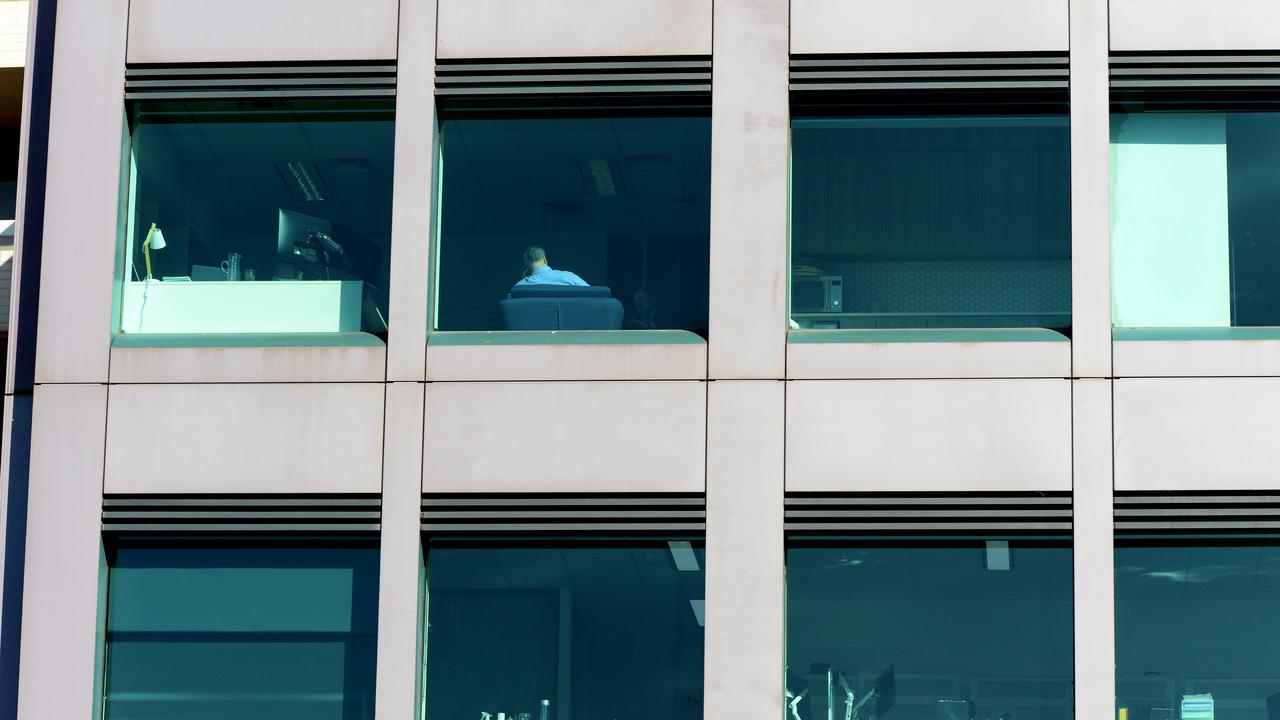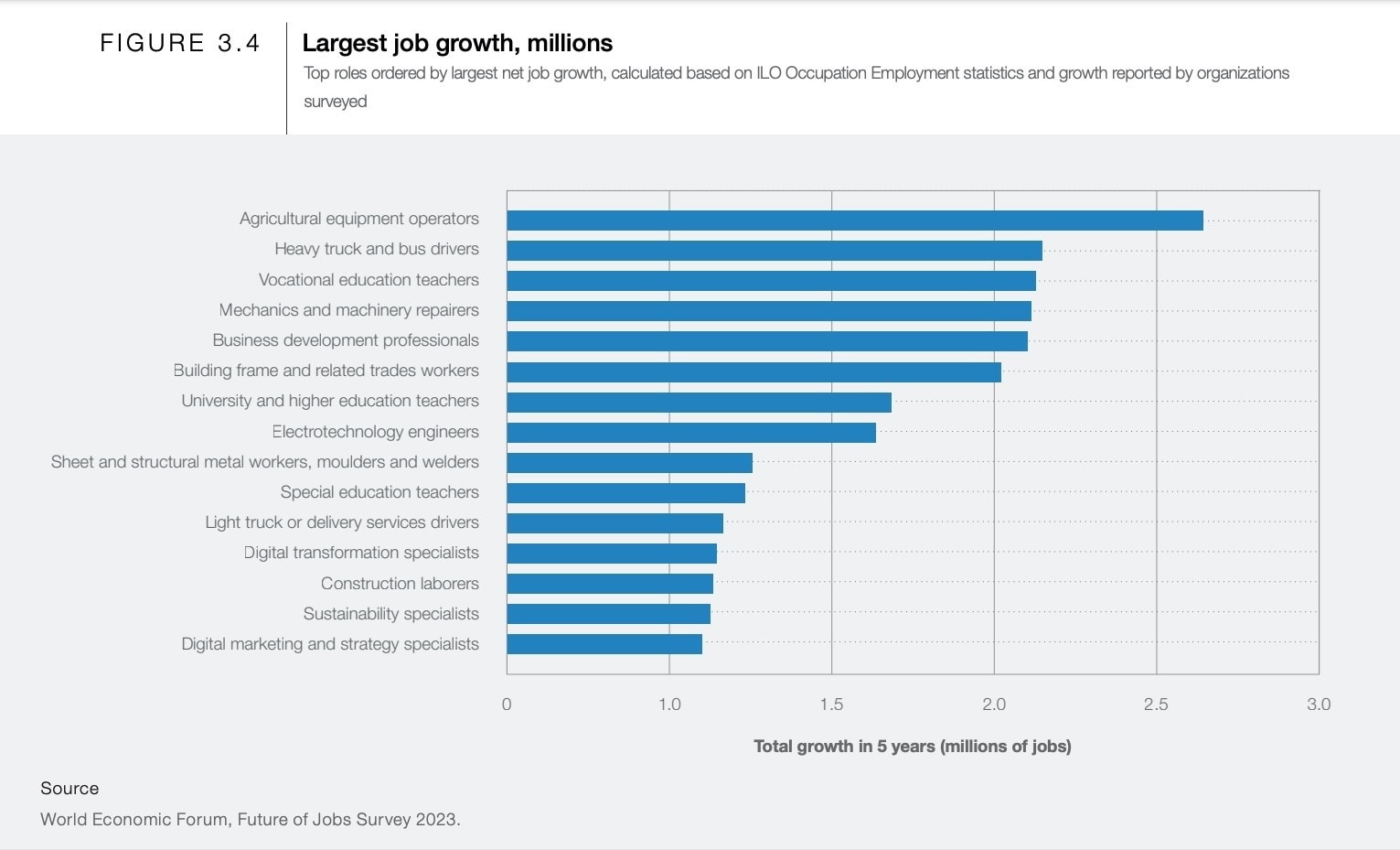The jobs mostly likely to be replaced by artificial intelligence technology in Australia
Thanks to rapid advancements in technology, these jobs might not exist in a few years – and there will be major consequences for all Aussies.

Leading experts have revealed the jobs most likely to become obsolete thanks to the rapid rollout of increasingly sophisticated artificial intelligence technology.
Last week, news.com.au reported that a major fast food chain in the United States had replaced its drive-through staff with AI voice recognition, with machines now taking orders in place of humans.
Experts in Australia said that type of technology could be implemented here within the year – and warned major disruptions in the food service sector would be just the start of things to come across many industries.


Automation driven by AI, coupled with the country’s ageing population and a transition to a net-zero emissions goal, will have a significant impact, according to analysis by consulting giant McKinsey.
In a recent report, it warned 1.3 million Australian workers might need to transition out of their current jobs and into new professions between now and 2030.
That equates to about nine per cent of the nation’s total workforce.
Occupations set to be hit hardest including office support, customer service and sales, and food services, McKinsey forecast.
Research by workplace technology firm Pearson and AI solutions provider ServiceNow warned any jobs that include a lot of repetitive and technical duties will be significantly impacted.
It too forecasted the total number of job losses to be in the vicinity of 1.3 million over the next several years.

About a quarter of jobs in the retail sector alone could be replaced by AI, in what the Pearson research described as a “tectonic shift”.
It also estimated that almost 46 per cent of banking roles, 28 per cent of accounting positions and 36 per cent of finance bookkeeping jobs could be automated by 2027.
Niusha Shafiabady, an associate professor in Charles Darwin University’s Faculty of Science and Technology, and an expert in machine learning, intelligent modelling and systems design, has researched the industries and roles most at risk.
Some face major upheaval over the coming years, with the pace of change set to be rapid in certain areas.
Admin gigs going fast
In the scheme of things, programmatic and AI technology is relatively cheap and easy to implement in some businesses, and it’s those that will be among the first to see job losses.
“Jobs that rely on humans following pre-existing instructions and don’t need many or any analytical thinking skills will be impacted relatively quickly,” Professor Shafiabady said.
“I’m talking about clerical or secretary roles, and jobs in administration, for example.”
In a report on labour market changes last year, the World Economic Forum predicted there would be 26 million fewer admin jobs globally by 2027.
Positions overseeing data entry, basic accounting, bookkeeping and payroll, ticketing and cashiering, and executive secretarial services will be decimated, the WEF report warned.
Professor Shafiabady concurred and said after identifying six of the most at-risk roles in Australia, she found they all sat within the admin realm.
Call centre workers were near the top of the list, she said.
“The tasks for this type of job can be replicated by an AI computer system, so it will be displaced,” she said.
Also at risk are those working as secretaries and foreign language interprets, with advanced technologies able to replicate many of those functions.
Even secretaries working in healthcare, such as a GP clinic receptionist, could be “relatively easily replaced”.
“A bookkeeper’s job could also be displaced relatively quickly, since the information flow can be captured by software systems,” she said. “At the very least, the number of required positions for this role are likely to decrease.”

And those Aussies whose job requires them entering some kind of data into a computer system should brace for an imminent disruption, she said.
As demonstrated in a viral video last week, those taking orders at chain restaurants in Australia could become obsolete relatively quickly because the existing technology has been proven to be effective.
Finance industry ripe for disruption
One of the first AI systems Professor Shafiabady ever designed was for a bank, with the purpose of conducting financial audits.
Technologies have come a long way since then, she noted, and much of the “logic” of auditing could be coded into software and many essential tasks might be automated.
Another role that could see some of its tasks automated is accounting, which might not lead to humans in those jobs replaced entirely, but could streamline workflows and see a reduction in the number of positions needed.
The same goes for financial analysts, she said, with decision-making logic potentially able to be replicated by technology.
Huge number of Aussies affected
While new tech jobs will be created as a result of mass AI adoption, there won’t be enough on offer to replace those lost.
For example, the Pearson research suggests some 80,000 tech roles could be created in the retail sector when AI is adopted, but some 250,000 positions are likely to be impacted.
In addition, the adoption of AI could streamline positions by absorbing responsibilities in professions like system administrator, telecommunications engineers and hardware technicians, the Pearson research found.

So significant are the consequences that Professor Shafiabady said parents with young children should start thinking about the futures that await them.
“If you have a kid who’s around seven or so, I’d start thinking about the implications of these changes to help them decide what kind of career they might have. You want to think about whether it will exist in the future.
“If we allow technology to take over occupations, many people will lose their jobs and this will have economic implications that will change our society.”
Jobs that are robust
Broadly speaking, any job that requires physical labour is likely to avoid major disruption for some time, given replacing them would require costly advanced robotic solutions.
Among them are manual roles in mining – the largest industry in the country.
“Take a driller,” Professor Shafiabady said. “Since this skill set requires hardware, its being displaced would require building a smart robot and could be costly.”

Similarly, many jobs in the construction sector, from painters to bricklayers and site supervisors, have a significantly lower risk of being replaced.
“The fact is the cost of hiring for a position such as a construction labourer globally, versus manufacturing and maintaining a robot to do the same thing, means this type of role is unlikely to be displaced soon.”
With risk comes opportunity
A report about the future of work by professional networking site LinkedIn found a surge in job advertisements demanding AI expertise.
“Companies are looking to hire professionals with AI skills across both technical and non-technical roles,” the report said.
The top five industries looking for job candidates with AI expertise are professional services, administrative and support services, government administration, manufacturing and retail, it found.
Demand for AI skills in technical roles, like data scientist and software engineer, has been on the rise since December 2022, the report noted.

However, companies are increasingly looking to hire professionals with AI literacy into non-technical positions too, like sales and supply chain.
“The diffusion of AI talent and skills across global economies will continue to increase as more companies embrace AI across their workflows,” it said.
“While many AI jobs require AI skills like machine learning, deep learning and data structures, most of those roles require a mix of AI and non-AI skills (people and digital skills). People skills include communication, leadership, and organisational skills.”
So, it seems very human qualities remain useful across most industries – for now.
Big global ramifications
In January, the International Monetary Fund released a report that forecast 40 per cent of all jobs globally will be impacted by the rollout of AI.
But in advanced economies, like Australia, that figure could be as high as 60 per cent, the IMF warned.
“Historically, automation and information technology have tended to affect routine tasks, but one of the things that sets AI apart is its ability to impact high-skilled jobs,” IMF managing director Kristalina Georgieva said.
“We are on the brink of a technological revolution that could jump-start productivity, boost global growth and raise incomes around the world.
“Yet it could also replace jobs and deepen inequality.”
On a scale of most prepared to least prepared countries, Australia fell roughly in the middle, the IMF report revealed.
In a similarly gloomy outlook last year, finance giant Goldman Sachs created a stir when it released a report predicting 300 million jobs globally could be lost to AI automation.




